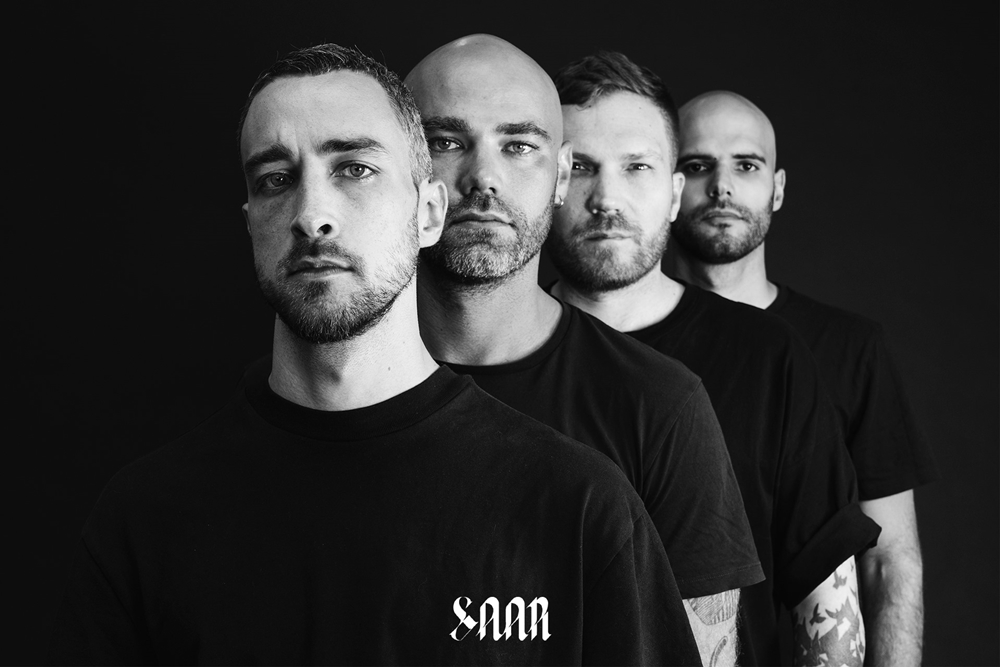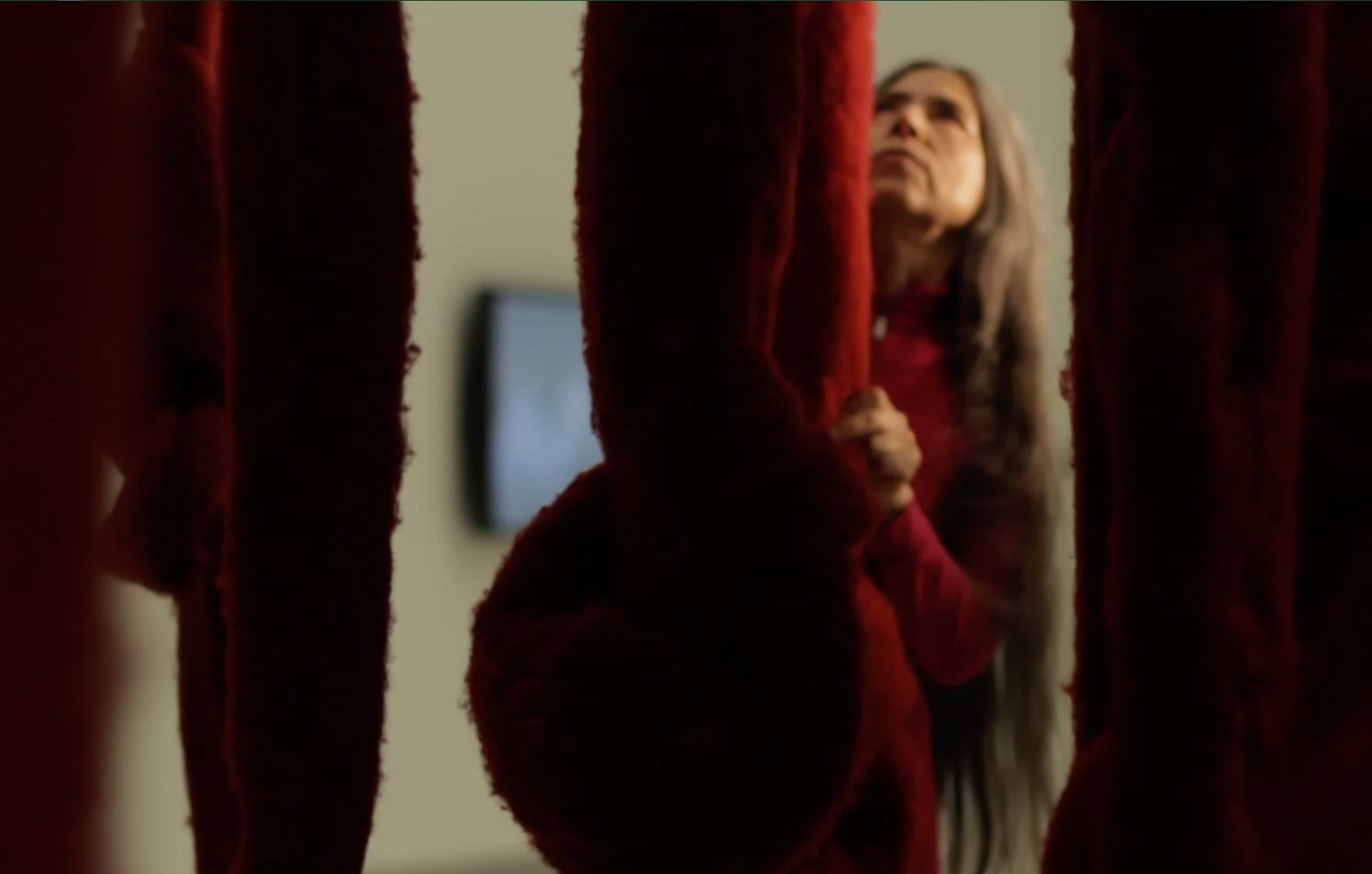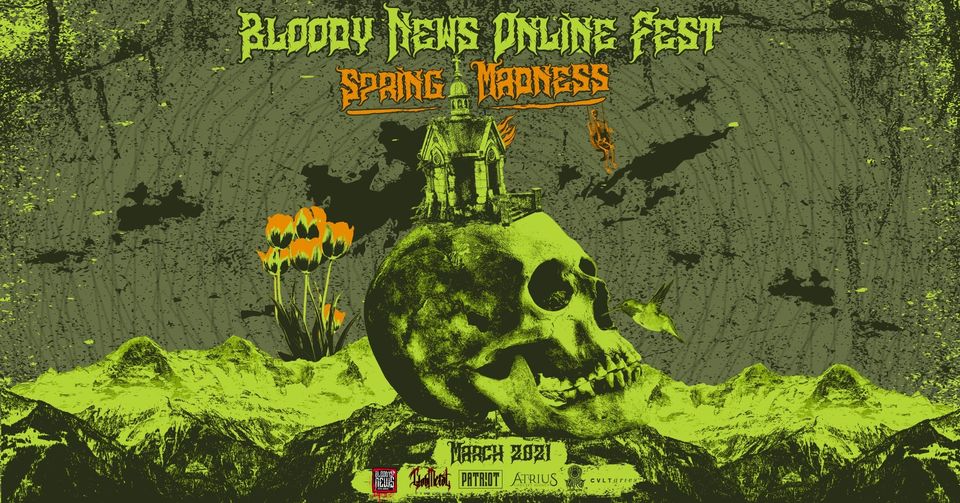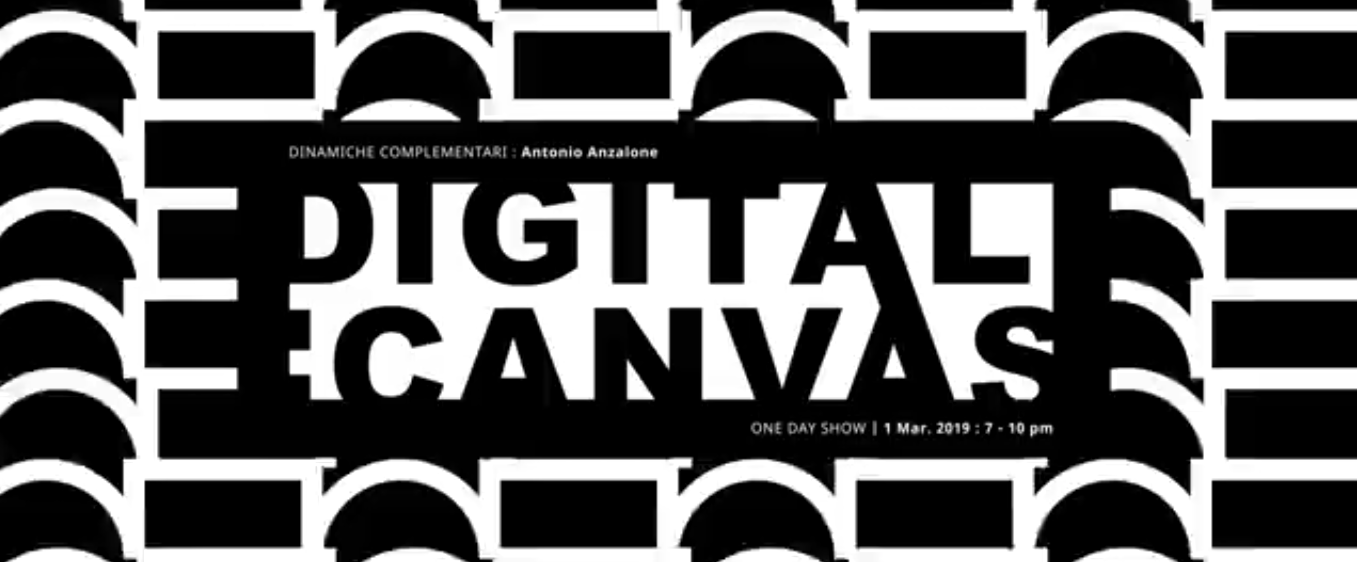Following two albums and a series of eps and splits, the Parisian collective now return with a new full-length album titled “Gods”, a concept album based on the epic poems of Homer. The album borrows mythological themes from the epic story of Ulysses, as depicted by Homer in his Odyssey. Recorded, mixed, and mastered by Francis Caste at Sainte-Marthe Studio, “Gods” sees SaaR merging serene post-rock ambiances with heavy post-metal passages, creating songs that veer from contemplative and ethereal moments to downright intense and emotionally charged ones.
CVLT: Hi and thank you! Now, do tell me – what kind of people listen to SaaR? Who are they, what are they thinking, how do you think they perceive life?
Yann (guitar): It’s a pleasure to meet you, we are very grateful to be able to express ourselves. I have this feeling our audience is often musicians, not just, but often: from young adults to full grown-ups. They are incredibly intelligent and beautiful outside and inside, they love life and believe the end of the world is getting closer.
Boris (bass): Hi CVLTARTES, thanks for the interview. I feel our audience comes from a lot of different musical and cultural backgrounds. It’s kind of difficult to pinpoint a particular sociological group that would be the “target” for our music, partly because it is instrumental, hence it leaves plenty of space for interpretation. Nature worshippers, open-minded and free spirits with some patience and a particular appeal for the esoteric world and pagan rituals may collect something positive from our music, hopefully.
At what point in your life did you have that moment where you said to yourself: “This is it. This is the type of music I want to create?”
Yann: Never, honestly, I just create music that evolves with time. The only thing I know is that music must be emotional and tell a story to me. Then I like to let the mystery take over.
Boris: For me, it is the discovery of seminal “post-metal” bands from the 2000s that led me to the obsession for this heavy, low-tuned, feedback-driven, and mind-expanding sound. Bands like Neurosis, Amenra, Isis, and particularly Sweden’s Cult Of Luna really had a huge impact on me when I was younger. Seeing all these bands in a live context totally blew me away, and I knew right from the start this was the sound I would constantly revolve around.
‘Gods’ it’s not post-metal in the conventional sense, and in this regard will only suit so many ears. Additionally, ‘Gods’ is a concept album based on the epic poems of Homer. What are its main themes and how would it (the album) be served best?
Yann: The main theme is the death of gods, but within this theme, you have so many metaphors, like the meaning of life, the quest for truth. What is the truth for a human being? Lots of references! Ulysses is the perfect background for telling these themes: “The man who challenges Gods, and at the end, won”. It’s metaphysical.
Boris: Additionally, I wonder what would be considered a “non-conventional” post-metal album, within a genre that has been codified so much. Good thing if you feel “Gods” appeals to some kind of outsider category. Homer’s Odyssey basically serves as a mythological canvas for the listener’s mind; the purpose is mainly to let the music speak, while the titles can help the listener picture their story, which is left for each individual’s free interpretation.
Is there a specific philosophy or worldview underlying ‘Gods’?
Yann: Yes, the eternal return, all is a circle, a cycle. In the end, we will make the same glories and mistakes, truth is a mirage. But at some point, maybe you can change something if you open your eyes to yourself.
Boris: As a side note, the album and the back cover give some clues about this eternal return idea: the first track Ulysses begins with some blurred echoes from the last track Truth, which in return dies in some distorted echoes from the first track. And on the back cover, the album figure of Truth is not “7” as it should be, but a lying “8”, symbol of infinite.
When listeners make their way through your songs, what do you want to feel? What kind of situation do you see your music accompanying?
Yann: I hope our listeners will feel progress into the darkness, like a fall into the unknown. The best situation is during your footing or whatever, but you need to have some pain physically, a little.
Boris: There are a number of introspective moments in the album, Styx being one of them, which would require total concentration to get into. Other parts, like Journey of Bridge of Death, would best suit a car ride on the highway; it highly depends on the mood. My recommendation would be to listen to it on vinyl, which sounds killer, on a proper HiFi setup or good pair of cans in your living room, your phone in sleep mode, with the help of whatever gets you going into the journey with the right mindset.
Take me through your sound design process. Is this a quick process, or something you might obsess over and re-visit?
Yann: The design was long and laborious because it was extended over 6 years of reflection. There were titles like Ulysses that had a lot of modifications between the first and last frame. And there are titles that have remained as they are, Bridge of Death for example. It was a laborious journey, but we are so happy with the result that it was worth the fight.
Boris: Many tears were indeed shed during the conception of this album. The rhythmical foundation has been submitted to a severe test, as we changed our drummer during the writing process, due to personal misunderstandings. The band has been pushed to its physical limits, and at one time we came close to implosion, but rose up stronger than ever before. At the end of the day, we worked the song structures, guitar tones, rhythmic patterns over and over, until obtaining precisely the album we wanted to create.
What do you feel is the best song you’ve ever released and why?
Yann: Bridge of Death on “Gods” is for me the best track we released, for the path, the contrast, the process, which evolves on it, the way the riffs come and go, it’s fluid and we’re talking about 10 minutes of music!
Boris: It changes every now and then, but I do have a genuine love for the album closer Truth, as it is the first time we tried to incorporate vocals in SaaR’s music, and the work our friend Julien Sournac from WOLVE did is absolutely mind-blowing. Gives me goosebumps every time the climax hits! Besides, I am quite proud of the bass solo Styx, also on “Gods”, which I recorded alone in the control room of Sainte-Marthe studio in Paris with our sound engineer and producer Francis Caste, at the end of my bass recordings. This was kind of a moment suspended from reality.
How is the writing process working for you? Is there a captain of the ship or is it more collaborative, organic work?
Yann: There is a captain of the ship. After the album “The Last Day”, SaaR was changing, because Mounir Farhat left the band, he was the father of SaaR, and me the mother. This was a hard time, from 2012 until 2013, the band was completely lost, and at this moment I’ve changed my way of considering the band as an organic entity. I started to write alone on my computer in 2013, and for SaaR it is still the same way now. I compose alone and each guy adds his sensibility that seems to work fine.
Boris: Yann is definitely the mastermind behind the music of SaaR. In the past, we used studio improvisations and recorded jams from rehearsals to find substance to work from. But as the years go by, and we know ourselves much better musically, we tend to work from pre-recorded ideas from Yann, around which we create our bass/drums/guitar parts. This way of working has proven to be more efficient and yields good results as our routine songwriting pattern.
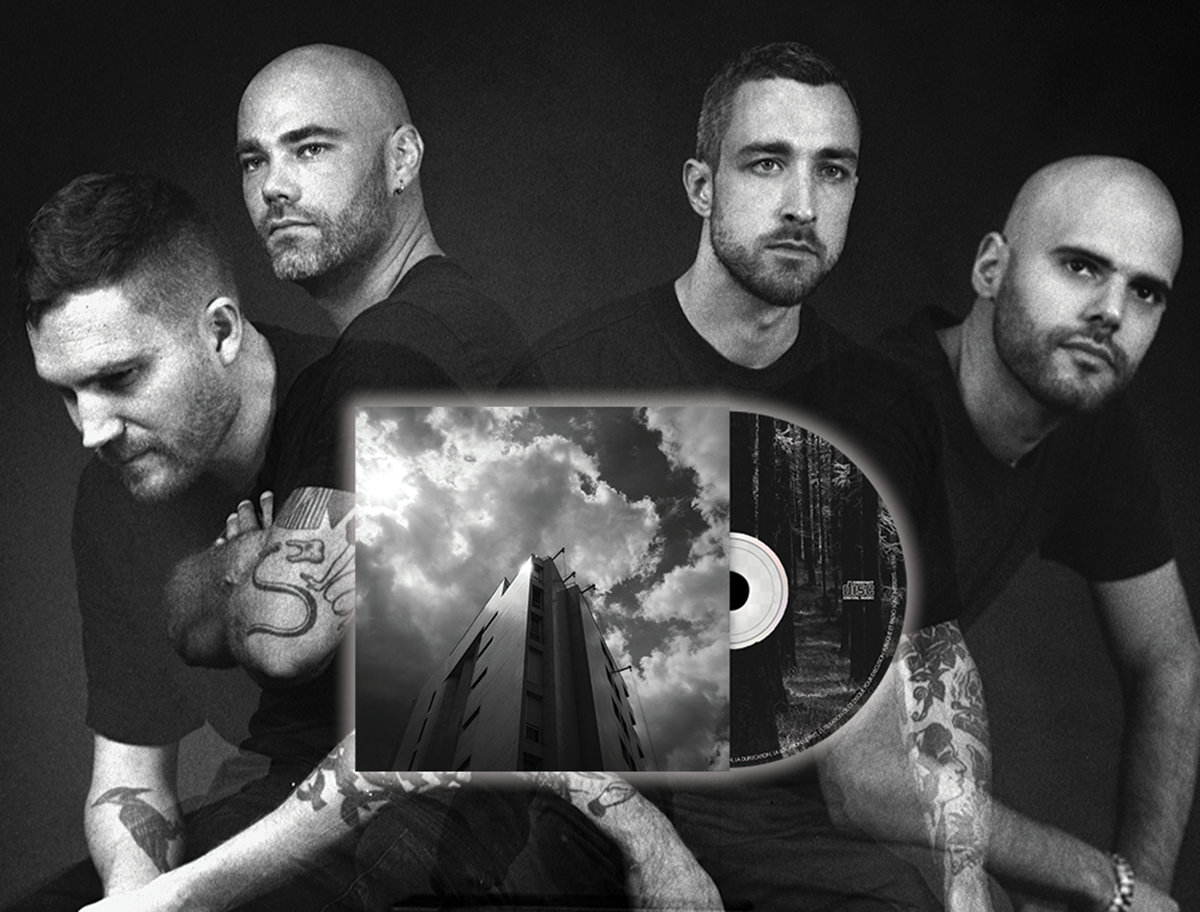
How do you think that the band’s sound has evolved over the years? Did you always have in mind to sound the way you sound today?
Yann: The sound of the band has continued to evolve according to our desires and influences. Our first album “The Last Day” was clearly Doom/Noise oriented with Post-Rock, French post-metal band Year of no Light influence was very present. On “Sol”, the band returned to more down-to-earth compositions, not so much doom-metal but more math and post-rock, we clearly had Russian Circles and And So I Watch You From Afar in mind at the time.
For “Gods”, we are trying to mix all of these influences with some Breach and Cult of Luna flavors. The group evolves, without really knowing where, but I like the idea of a project in perpetual change.
Boris: In addition, the way we record and produce our music in the studio has evolved to great lengths throughout the years. Before “Gods”, we worked in a DIY style, recording and mixing all projects in home studios. For example, I recorded and mixed “Sol” in France countryside, on a farm turned-to-studio. The result was quite rough on the edges, quite a garage, but this time, the choice of working with a renowned metal producer and sound engineer, Francis Caste, pushed us to level up in many ways, and “Gods” turns out to be the most polished and pristine album we ever released.
There are many descriptions of the ideal state of mind for being creative. What is it like for you? What supports this ideal state of mind and what are distractions? Are there strategies to enter into this state more easily?
Yann: I have to feel that I really want it, it’s a bit strange to describe, but sometimes I try without really believing it, and nine times out of ten, it doesn’t work. When it’s the right moment, I feel it immediately, the ideas come naturally, and everything seems simple. These moments are precious, sometimes I even have the impression that I am not in control of what is happening, as if I were an antenna receiving instructions. There are many distractions, video games, I’m a big geek and sometimes it’s easier to play than to compose. My family, of course, I’m a couple and we have a 9-year-old child, who demands attention, and sometimes I can’t do anything.
Boris: I tend to be more creative at night; you have to craft the right environment around you to get into a visionary mindset, this is a rare and precious thing you have to respect and cherish. For me, this requires a relaxed environment, with no distractions, nothing planned on my schedule anymore for that day. Usually, the strategies I use to enter this particular mindset is reading for a few hours, maybe listening to music that inspires me, and many times watching a particular band playing live, which quite often inspires me to try new things with my bass – that could be anything; setting up a new pedal configuration, trying a new technique I’d never thought about, adjusting a minus detail in the connection my mind forges with the instrument. Having a quiet place at home to practice, write and listen to music in the right mind state is paramount to enter these almost sacred states of mind.
What does it mean to play and live in the millennial generation of post-metal artists? What do you borrow from those who came before you, and what do you do to push the genre forward?
Yann: I don’t really know, I think we’re in one of the worst musical periods, because we’re overwhelmed by thousands of bands of all kinds, and on the other hand it’s wonderful because we’re more in tune with what that we love, musically of course. Being able to listen to newly released music instantly changes everything, even for post-metal. I imprint what I like in the bands I love. I can’t answer this question correctly, because it will depend on too many factors. I like to believe that my influences are now digested and when we listen to SaaR, we don’t feel the influences, we listen to SaaR, period. It’s a little presumptuous but that’s what I like to believe.
Boris: I feel post-metal is far from being fancy anymore for the mainstream millennial generation. There are a few new cool bands here and there, but mostly it seems like the godfathers of the genre have never been surpassed. Isis’ “Panopticon”, Cult Of Luna’s “Salvation” and Neurosis ”Times of Grace” still are landmarks of the genre, twenty years later. However, the post-metal scene, as an emanation from the underground, especially in France, is still alive and healthy as ever, with new bands offering thoughtful and mesmerizing albums that borrow from some of these classics while creating new universes that were never heard before, and that’s the beauty of it. I can name dozens of interesting active bands in our country alone: Corbeaux, Ingrina, Sunstare, Maudits, Nesseria, Ddent, MIME, The Random Monsters, Ovtrenoir, Vesperine, Cendres, Fall Of Messiah. The list goes on and on, people just need some curiosity, but the scene is still very much alive.
Finally, with there being such a solid set of tracks on ‘Gods’, is there one you’re most looking forward to playing live for people?
Yann: Bridge of Death and Truth, BoD for the power it releases and those riffs that make your head spin. Truth for the feat with my friend Julien, I like his singing so much that the whole composition is transformed, from a simple riff to a real song, and it is a great pleasure to interpret it!
Boris: Totally agree with Yann for Bridge of Death and Truth. The groovy Bossk-oriented progression of stoner-rock riffs in the middle part of BoD is especially cool to play locking in with a great drummer like Julien Taubregeas. And playing Truth along with Julien Sournac’s vocals feels like a refreshing moment after 45 minutes of dark post-metal introspection!
When you perform live, how do you want your audience to feel as they leave the show?
Yann: I like to believe that our music will create introspection on the world around us as well as on them, that there is a feeling of the unknown to be probed, answers to be found in order to ultimately become more serene. Thank you very much for your questions, it was a pleasure to answer them, I hope to meet you during a concert to be able to talk about it in person! Be well everyone.
Boris: I know it is a little bit cliché but I would like to think of a good SaaR’s show almost as a cathartic, mind-expanding experience. The sheer power of instrumental music with low-tuned, heavy guitars, solid bass, and pounding drums which tells a single story for each individual in the audience produces some kind of an almost collective ritualistic experience. We hope each one grasps a special memory from this experience and takes it back home to create something positive in this world. Thank you CVLTARTES for the interview and everyone take care and be kind to each other.
You can order ”GODS”, HERE.
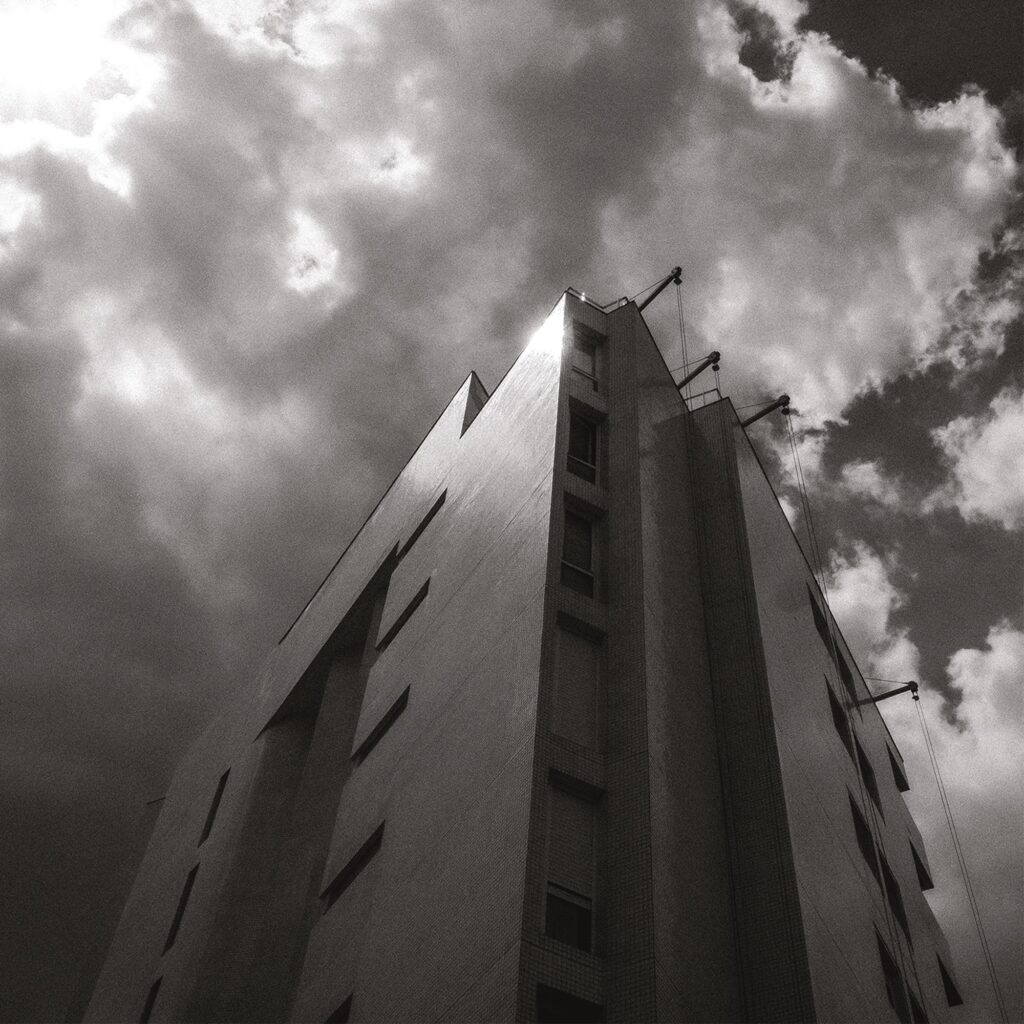
Follow SAAR on:
Facebook | Instagram | Bandcamp
Cover photo: (c) fakele.photographie
Nicoleta Raicu
Latest posts by Nicoleta Raicu (see all)
- Sacred Modernity: These Churches Are Unlike Anything You Have Seen Before - April 25, 2024
- Multimedia Artist OIEE Talks New Music & Visual Ideas - April 24, 2024
- Hottest Music Collabs Right Now - April 24, 2024
